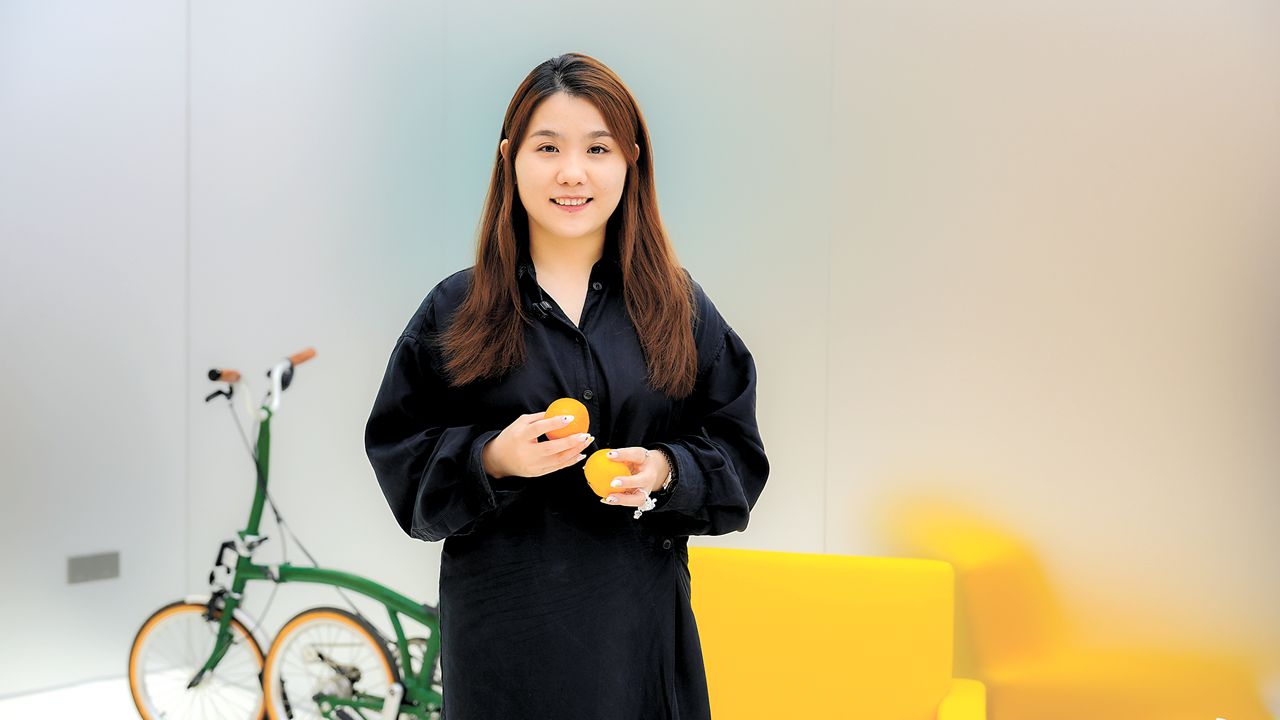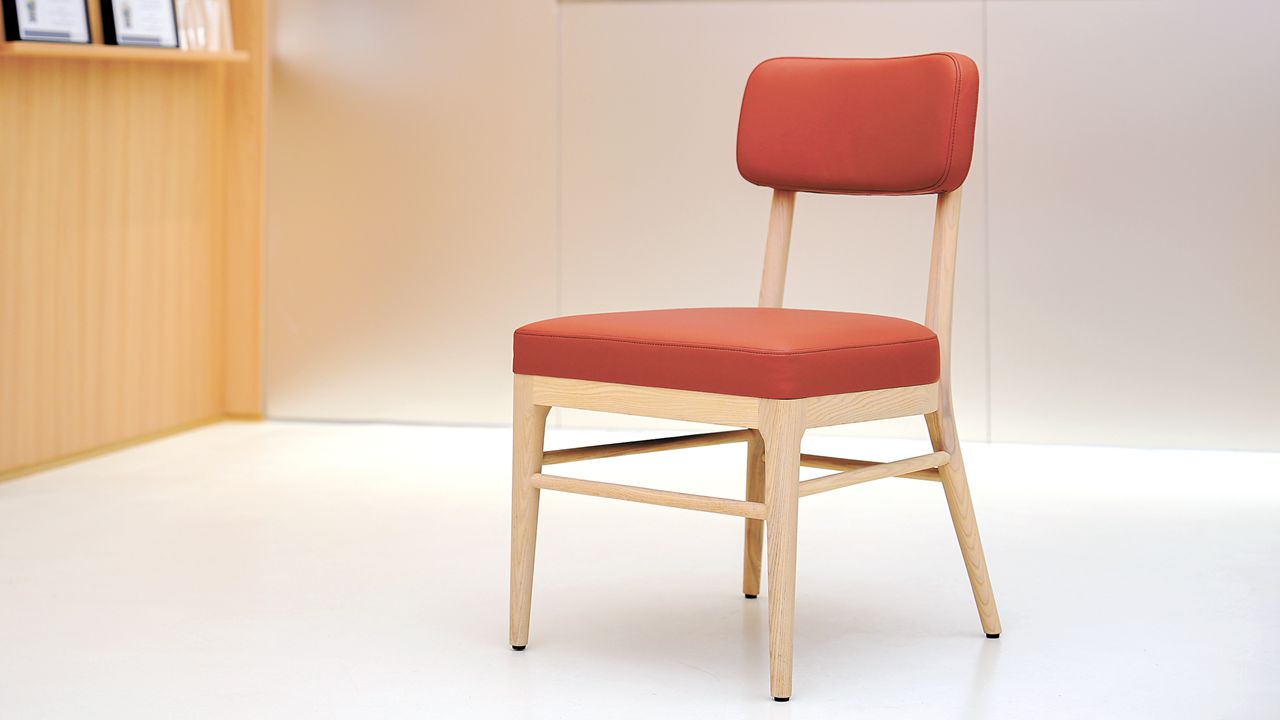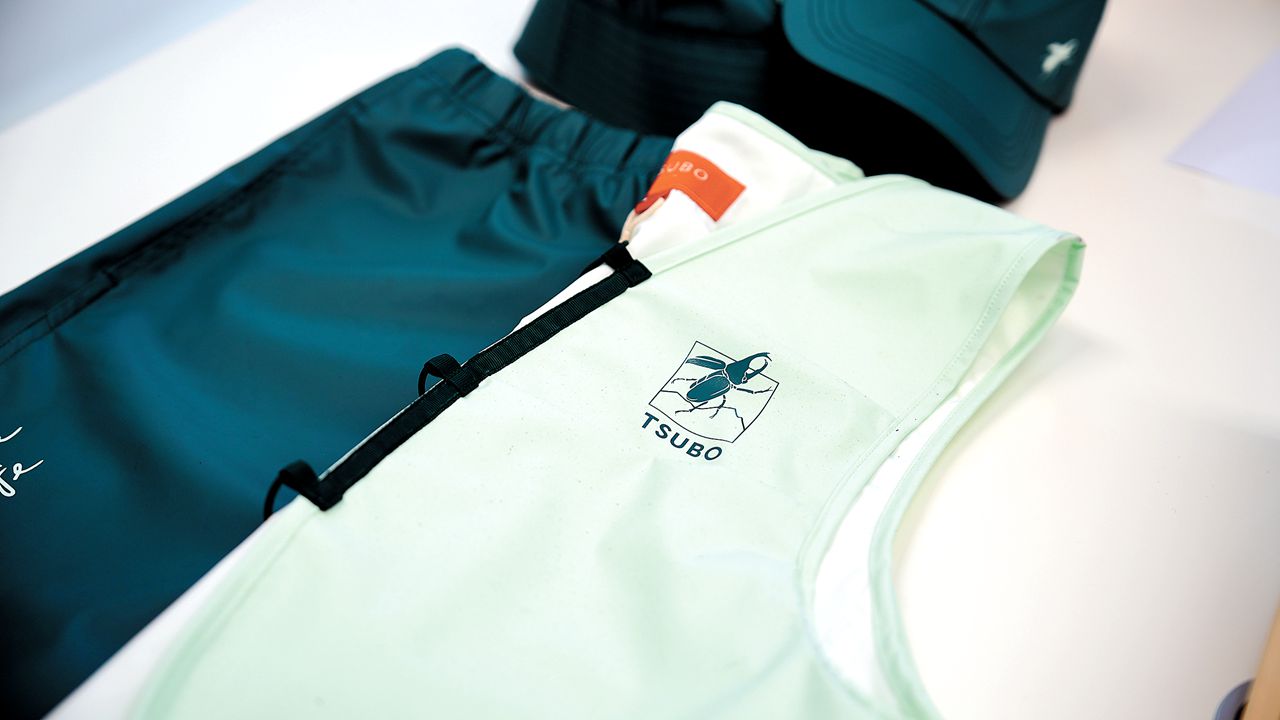Startup turns agricultural waste into leather
Writer: Yang Mei | Editor: Zhang Zhiqing | From: Original | Updated: 2025-05-21
Video and photos by Lin Jianping
In the environmentally conscious society that we live in today, trash being turned into treasure is not something new. However, can you imagine that coffee grounds from seven cups of coffee can be made into a chic pair of loafers?
This is just one of the examples of how Shenzhen Pufei Biotechnology Co. Ltd. is turning non-grain agricultural waste like algae and fruit skin into biomaterials for leather goods.
Origin
Founded in 2022 and based in Guangming Science City, Guangming District, Shenzhen Pufei Biotechnology is a material innovation company specializing in the research, development, and production of sustainable materials.
Its flagship brand, PEELSPHERE, focuses on transforming non-grain agricultural waste into plant-based fabrics. The brand uses sustainable integrated technology to create materials known for both their performance and aesthetic appeal.
PEELSPHERE also provides comprehensive sustainable fashion services to global brands across various sectors. Notably, it is the first plant-based fabric brand to enter the supply chains of international luxury goods groups and prominent automotive manufacturers.

Song Youyang, founder of Shenzhen Pufei Biotechnology Co. Ltd.
“Our materials boast the same qualities as real and synthetic leather, but we’re lighter, softer, cheaper, more durable, and biodegradable,” company founder Song Youyang told Shenzhen Daily during an interview Monday afternoon.
Song added that PEELSPHERE’s materials find applications in various sectors, including fashion, 3C (computer, communication, and consumer electronics) products, jewelry, automobiles, and home decor.
“First, we take the fruit waste and clean it up. We get rid of things like sugars, colors, proteins, and oils. This leaves us with basic plant fibers. Then, we mix these fibers with a new kind of natural glue to create our bio-based leather,” she explained.
Eco-friendly
According to Song, PEELSPHERE’s Algaeskin™ and Bestwaste™ bio-leather series have passed rigorous testing by the European Union and several top-tier global luxury brands for material content, performance, and usability.
Algaeskin™ algae-based leather is described as the world’s first 100% bio-based, translucent biotech leather developed using algae as a raw material.

A chair that uses PEELSPHERE’s materias.
Bestwaste™ is a plant-based fabric series that embodies a full-lifecycle approach by utilizing non-food agricultural waste like coffee cherries and grounds sourced from Starbucks. This innovative, zero-carbon, non-toxic, and zero-emission textile makes use of the entire coffee plant’s journey — from cultivation and fruit bearing to its husks and residual waste.
PEELSPHERE has been certified by TÜV AUSTRIA as OK biobased and received awards such as the German Sustainability Award (presented by Angela Merkel) and the MATERIALICA Design + Technology Award.
Additionally, PEELSPHERE won the Kering K-Generation Award in 2021 for Innovation in Sustainability. In March 2024, the company secured procurement partnerships with multiple luxury brand.
Partnerships
Currently, PEELSPHERE collaborates with multiple luxury brands under Kering Group, as well as BMW, Mercedes-Benz, MOFT, 7or9, and, most recently, the high-end outdoor brand TSUBO.
Showcasing a pair of hiking shoes developed in collaboration with TSUBO, Song noted, “This pair of bio-leather shoes are lighter, more comfortable, durable, and easy to clean, which aligns with TUSBO’s urban outdoor lifestyle and sustainable fashion ethos.”

PEELSPHERE’s fabrics are used in the products of the high-end outdoor brand TSUBO.
PEELSPHERE’s bio-based leather now incorporates more than 60 common plant-based materials. Song emphasized that PEELSPHERE adheres to a “from local to local” philosophy, partnering with entities such as Starbucks in South China and corn businesses in Guangming District to help with the localized processing of non-grain agricultural waste, enabling its high-value, circular reuse.
“Recycling local non-grain agricultural product is key,” Song stated. “We’re helping to eliminate unnecessary agricultural byproducts. Corn stalks and leaves, for example, contain significant amounts of fiber. Instead of burning or burying them, we can recycle them into valuable products, which I believe is more meaningful.”